Checking In a Client
Check In a Client
To check in a client, simply click on the client’s appointment for the appropriate date/time. The following dialog will appear.
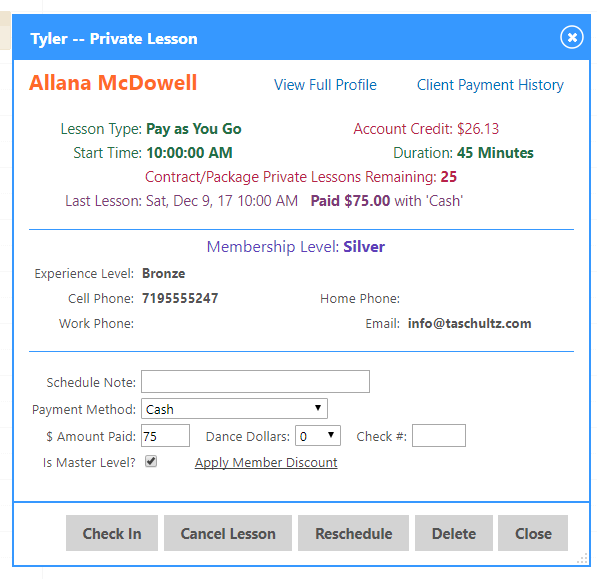
As you can see, there is an abundant amount of information displayed on this form.
Membership
If a customer is a member, their membership level will be shown in the center of the dialog. You will also see the “Apply Member Discount” link button next to “Is Master Level”, to allow you to change to the member billing prices. If a customer is not a member, neither their membership level or the “Apply Member Discount” button will appear.
Notes on Payment Methods
If a lesson was scheduled as “Pay as You Go”, the default payment method is Cash. This can be changed, to include utilizing contract/package authorizations. The same can be said with contract/package and intro package lessons; if the payment type is changed from “On Contract/Package”, the lesson type is changed to “Pay as you Go”.
Press “Check In” to Complete
To check in a client, provide the payment method, amount paid, and if applicable dance dollars and check number. Press “Check In” when complete.

Rescheduling a Private Lesson
To reschedule an appointment, click the appropriate lesson from the calendar. Press “Reschedule”. The following screen will appear.
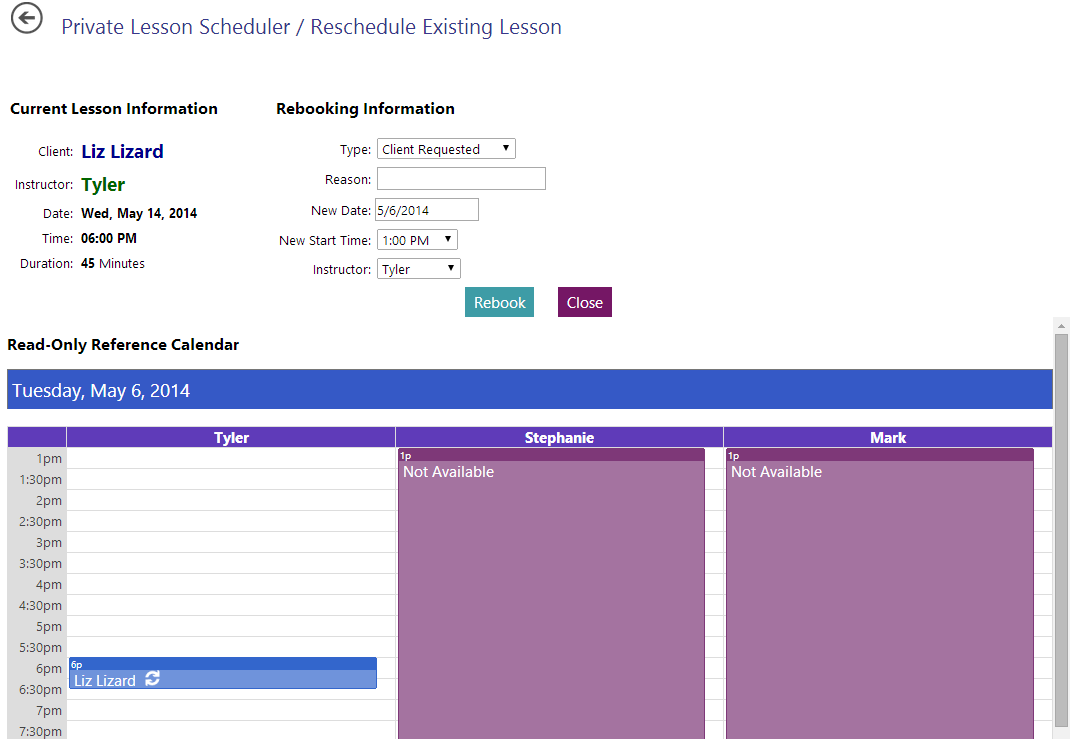
Rescheduling can be marked as client or teacher requested for record keeping purposes and a custom reason can be provided. You can also reschedule the client to a new instructor. To assist you in determining where the client can be schedule, a read-only reference calendar is shown at the bottom of the page. To view a different date, click on the date and select it from the calendar as you would on the normal scheduling interface.
Upon selection of the appropriate time, date, and instructor, press “Rebook”, and the appointment will be moved.
Deleting a Lesson
To delete a lesson that has not been checked in, without any impact to authorizations, simply click on the lesson and press “Delete” on the dialog.
Cancelling a Lesson
To cancel a lesson, select the appropriate lesson and press “Cancel”. The following dialog box will appear.
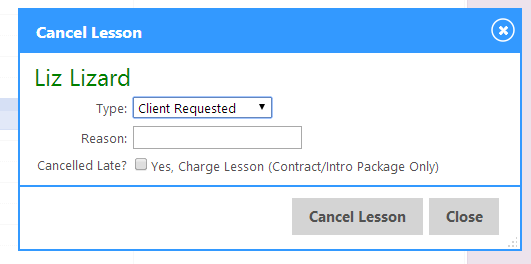
Select the type of cancellation (teacher/client) and provide a reason. If your studio has a late cancellation policy for contract/package lessons, where you charge the client a lesson if cancelling too late, you can facilitate that policy here by checking the box “Cancelled Late”.
When complete, press “Cancel Lesson”. One of the following will appear, depending on the type of cancellation.
 |
 |
|---|---|
Book a New Lesson over a Cancellation
e-Ballroom keeps cancelled lessons on an instructor’s calendar for awareness purposes. You can schedule over a cancelled lesson!
To do this, simply click on the cancelled lesson. The following dialog will appear:
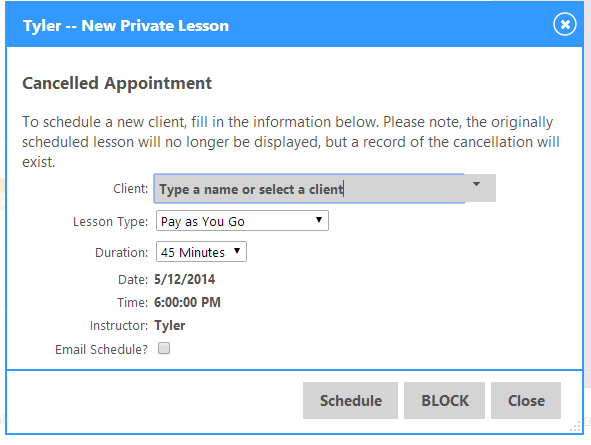
Schedule the lesson as normal. The cancelled lesson will still exist in the system, but will no longer be displayed!
Adding Lesson Notes, Updating Check In Information
To add lesson notes or modify check in information, simply click on the appropriate lesson. A dialog similar to the one below will appear.
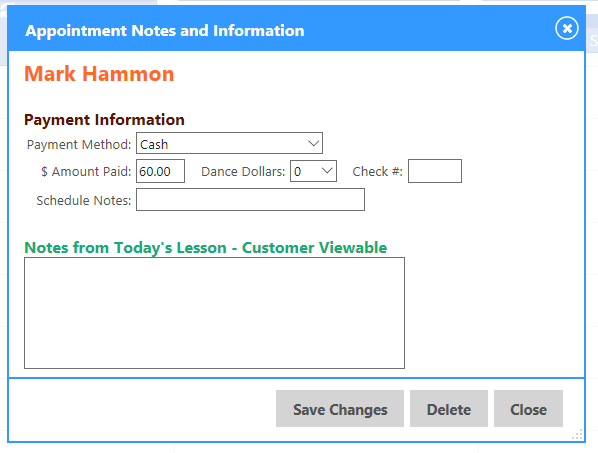
To add notes, and to update any other information, simply make the desired changes within the dialog and press “Save Changes”.
If you change the payment method from a money-payment method (i.e. it was a “Pay as you go” lesson), to “On Contract/Package”, the system will deduct an intro package authorization or contract/package authorization. The appointment type will also be changed.
Conversely, if you change the payment method from “On Contract/Package” to a money-payment method, an authorization will be added back to the client’s profile for the appropriate type. (i.e. if it was an intro package, an intro package authorization will be returned to the client)